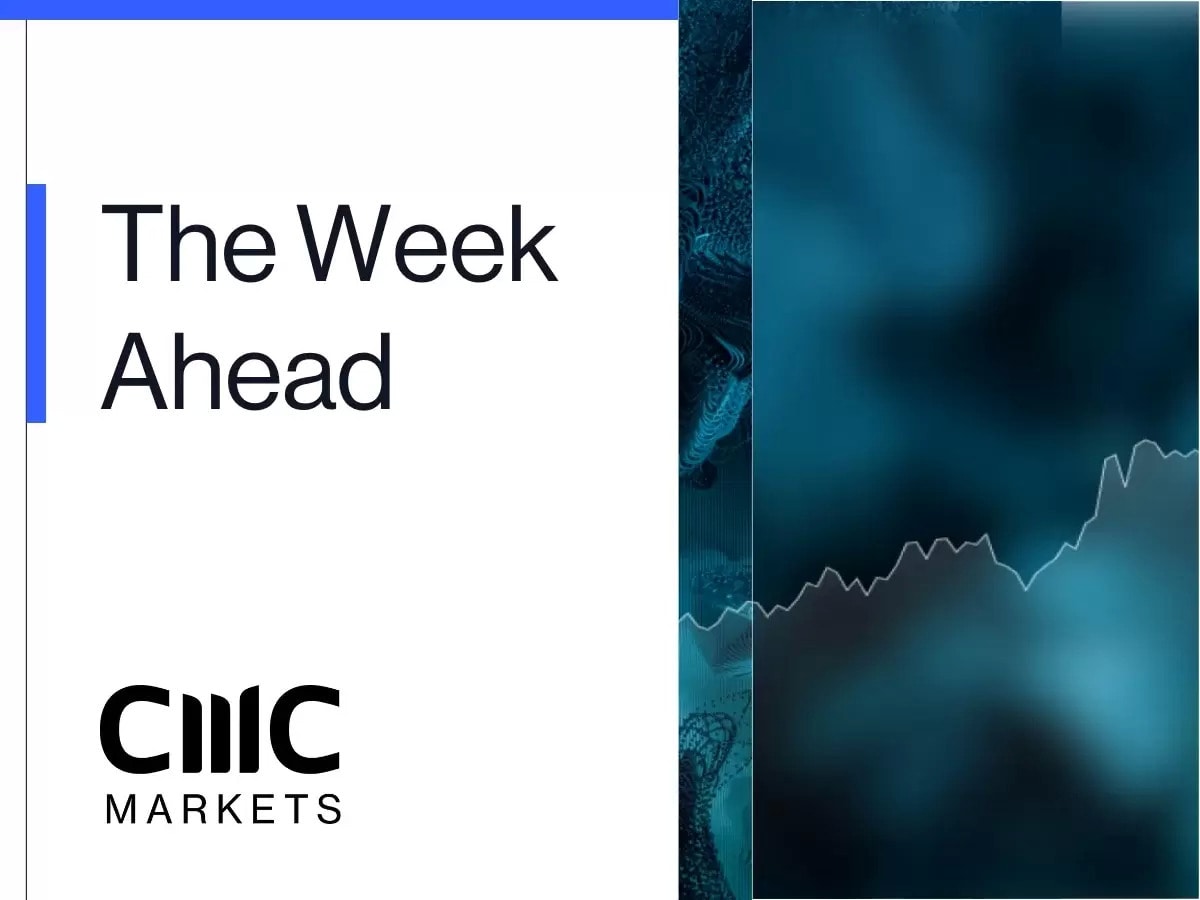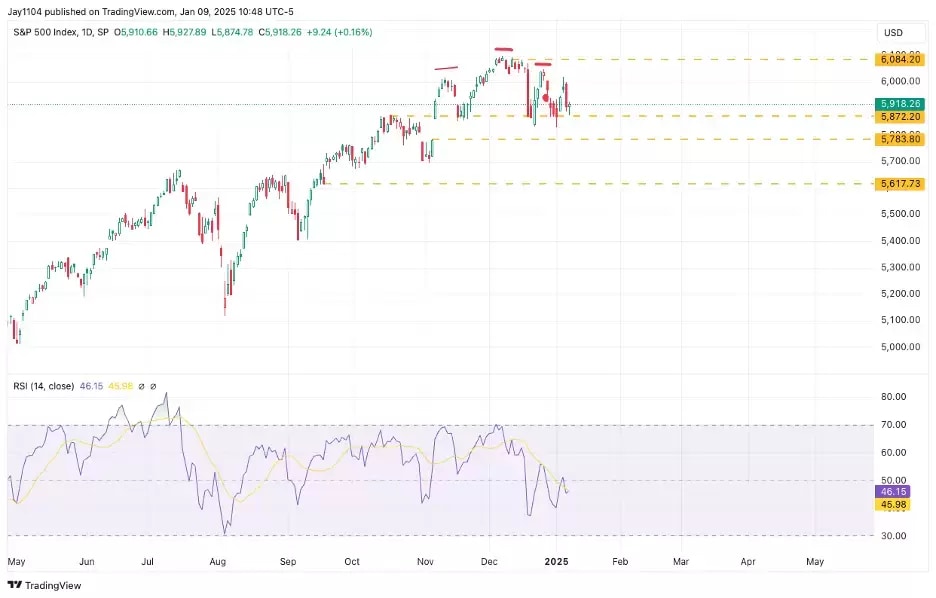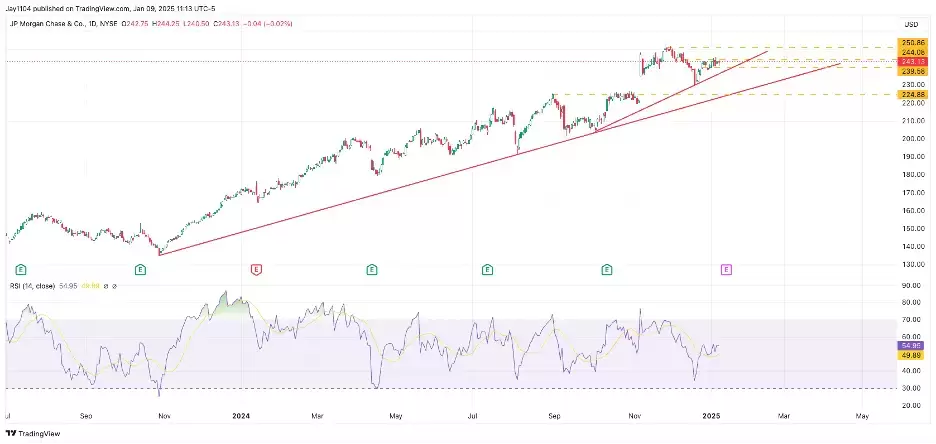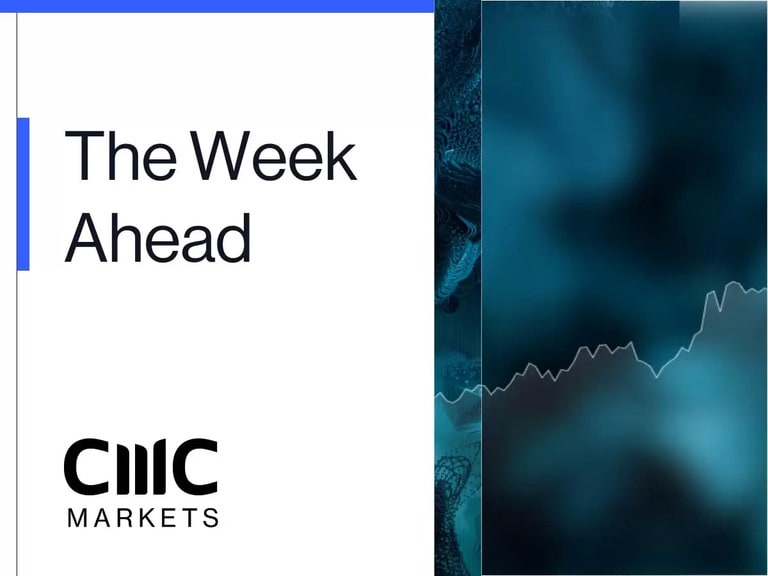
Welcome to Michael Kramer’s pick of the top three market events to look out for in the week ahead.
The coming week will be a significant one on both sides of the Atlantic. Inflation reports from the US and the UK, due out on Wednesday, come at a critical moment. Government borrowing costs have risen sharply in both countries since the start of the year, and the pound is weakening against the dollar. This would not an ideal time for consumer price index (CPI) readings to come in higher than expected. A surprise could spook jittery bond markets. Meanwhile, US banks including JPMorgan, Citigroup and Goldman Sachs kick off a fresh earnings season with the release of their fourth-quarter results.
UK December CPI
Wednesday 15 January
To say that this inflation report is critical would be an understatement. UK 30-year gilt yields have surged to levels not seen in decades, and the pound has come under downward pressure against the US dollar as traders and investors appear concerned about the potential for a stagflation-like scenario of low growth and elevated interest rates. UK CPI eased to 1.7% in September but went back up to 2.3% in October – above the Bank of England’s 2% target – before climbing to 2.6% in November, driven by increased fuel and clothing prices. Estimates for December vary, but it seems unlikely that inflation cooled versus the November figure.
Against the current economic backdrop, one wonders whether the BoE will be able to continue cutting interest rates as planned in 2025, after it lowered the base rate by a quarter of a percentage point to 4.75% in November. Services inflation is still running at 5% year-on-year. Meanwhile, core inflation – which doesn't include food or energy prices because they tend to be volatile, making the core reading a better indication of longer term inflation trends – increased 3.5% in the year to November, up from 3.3% in October. All of this suggests that underlying inflationary pressures remain persistent.
If the CPI reading comes in higher than November’s 2.6%, gilt yields – government borrowing costs – could rise further, potentially forcing the market to rein in or quash expectations of BoE rate cuts. However, if the market is concerned about stagflation, the prospect of fewer rate cuts could further weigh on GBP/USD. Currently, support for the pound at $1.23 looks critical. A break below this level could send the pound down to its next support area at $1.20. After that, there’s further support around $1.18.
GBP/USD, October 2022 - present

US December CPI
Wednesday 15 January
The US will release its CPI report for December on Wednesday. Alongside the producer price index (PPI) reading on Tuesday, the data will give the market a sense of what the personal consumption expenditures (PCE) price index, the Federal Reserve’s preferred measure of inflation, might look like when it’s released on 31 January. PCE rose 2.4% in the year to November, up from 2.3% in October, while the core measure was unchanged at 2.8%.
Analysts expect PPI to have risen 0.4% month-on-month in December, the same rate as in November. Meanwhile, CPI is forecast to have increased 0.3% month-on-month, unchanged from November, while rising 2.9% year-on-year, up from 2.7% in November. Core CPI is expected to have increased 0.2% month-on-month, down from 0.3% in November, while remaining at 3.3% on an annual basis. The inflation swaps market suggests that CPI could rise 0.4% month-on-month, just above analysts’ estimates, and 2.9% year-on-year.
If the CPI figures exceed estimates, the Fed may delay further rate cuts. That could create a challenging environment for risk assets, particularly US equities. The S&P 500 appears to be forming a head-and-shoulders pattern (see chart, below), typically an indicator that an uptrend may be nearing its end. The index has found support at the neckline, near 5,870. A break below this level could result in the index dropping to 5,780, filling the post-election gap. Further selling could send the index down towards 5,600, especially as momentum indicators such as the relative strength index (RSI) have turned more bearish since mid-December.
S&P 500, May 2024 - present

JPMorgan Q4 results
Wednesday 15 January
Analysts expect JPMorgan to report that fourth-quarter earnings grew 2.8% year-on-year to $4.08 a share, as revenue increased 4.8% to $41.9bn. Meanwhile, total trading revenue is expected to be up 13.2% at $6.6bn, though net interest income is thought to have decreased 4.7% to $22.9bn.
Guidance will be closely watched, with analysts expecting first-quarter revenue to grow 1.8% to $43.3bn. However, their forecasts also point to earnings falling 6.6% to $4.32 a share, and net interest income dropping 2.7% to $22.5bn.
Currently, options market pricing suggests that shares of the largest US bank by assets, up 42% in a year at $243, could move around 3.1% in one direction or the other following the Q4 results. Support is at $240, with resistance ranging from $245 to $250. However, upside potential appears limited. The downside risk for the Dow Jones constituent is that a break below $240 could see its shares drop to the next support zone near $225, filling a gap that was created after the US election.
JPMorgan Chase & Co. share price, August 2023 - present

Key economic and company events
The coming week’s major economic announcements and scheduled US and UK company reports include:
Monday 13 January
• Australia: January Westpac consumer confidence
• Results: ServiceTitan (Q3)
Tuesday 14 January
• US: December producer price index (PPI)
• Results: Applied Digital (Q2), Games Workshop (HY), Ocado (Q4)
Wednesday 15 January
• UK: December consumer price index (CPI), PPI and retail price index (RPI)
• US: December CPI
• Results: BlackRock (Q4), Citigroup (Q4), Goldman Sachs (Q4), JPMorgan Chase & Co. (Q4), Wells Fargo (Q4)
Thursday 16 January
• Australia: December unemployment rate
• Germany: December harmonised CPI
• UK: November gross domestic product (GDP)
• US: December retail sales
• Results: Bank of America (Q4), Dunelm (Q2), Morgan Stanley (Q4), PNC Financial Services (Q4), Taylor Wimpey (Q4), UnitedHealth (Q4), US Bancorp (Q4), Whitbread (Q3)
Friday 17 January
• China: Q4 GDP, December retail sales, December industrial production
• UK: December retail sales
• US: December industrial production
• Results: Truist (Q4)
Note: While we check all dates carefully to ensure that they are correct at the time of writing, the above announcements are subject to change.
Disclaimer: CMC Markets is an execution-only service provider. The material (whether or not it states any opinions) is for general information purposes only, and does not take into account your personal circumstances or objectives. Nothing in this material is (or should be considered to be) financial, investment or other advice on which reliance should be placed. No opinion given in the material constitutes a recommendation by CMC Markets or the author that any particular investment, security, transaction or investment strategy is suitable for any specific person. The material has not been prepared in accordance with legal requirements designed to promote the independence of investment research. Although we are not specifically prevented from dealing before providing this material, we do not seek to take advantage of the material prior to its dissemination.





















